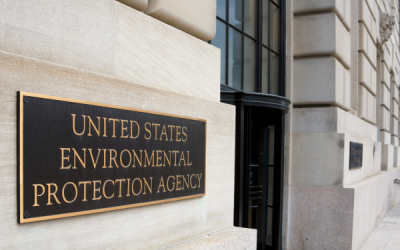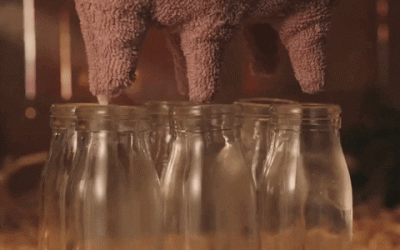It’s a bird, it’s a plane, it’s… a Chinese drone.
Flying under the radar: Members of Congress are concerned about Chinese-manufactured drones on American farms, saying they’re a national security threat.
The specific drones concerning the legislators are made by Chinese company DJI, which has indicated it has no ties to the Chinese military. DJI is the world’s largest drone manufacturer.
Soundbite: “The unfounded accusations against our agricultural drone technology are putting U.S. farmers at risk by potentially depriving them of the tremendous benefits that DJI spray drones offer.” — DJI
Grounding concerns: Even farmers are defending DJI, saying losing access to the technology would negatively impact their productivity and profitability. Farmers’ use of drones has grown along with their crops. According to a survey from Iowa State University, 21% of the state’s farmers use drones. And 32% plan to use them in the future. Nationally, that number is flying even higher with a 2023 CropLife/Purdue survey saying drone use is at 30% among ag retailers— and that’s expect to increase to 54% by 2025.
The sky’s the limit: Nevertheless, a letter signed by 12 lawmakers to Ag Secretary Tom Vilsack calls on the USDA to ban DJI drones from operating in the U.S. The letter says there’s a possibility of DJI’s agricultural spray drones being manipulated to carry out an attack on the U.S. and put the food supply at risk. There are fears these drones can be used to send vital information and data to China.
Not just a letter: This letter is tied to a bill—the Countering CCP Drones Act—that has passed the House. DJI would be added to the “covered list” and prevent future FCC licenses for DJI. This bill, a rider to the defense spending bill, needs to fly with the Senate too to become law.
Short Corn Packs a Punch
Dynamite comes in small packages—which can be true with new seed technology. What’s...
Congress to EPA: What’s Your BEEF with Meat Packers?
The Environmental Protection Agency (EPA) is considering new regulations that take aim at meat and poultry processors.
And some members of Congress have a BEEF with the EPA’s proposals.
The proposed rules: In late January, the EPA released the details of its proposed “Clean Water Effluent Limitations Guidelines and Standards for the Meat and Poultry Products Point source category.”
Huh?
Basically, the EPA formally published its proposals to combat wastewater contaminants that come from slaughterhouses.
Okay… that makes more sense.
At the heart of the rules proposal is a concern from environmental groups about nitrogen and phosphorus pollutants that originate from slaughterhouses. In some cases, the wastewater goes directly into waterways. In other cases, the water goes to municipal wastewater treatment facilities.
But not everyone is on board with the EPA’s suggestions…
Congress responds: Last week, two U.S. representatives—Eric Burlison (MO) and Ron Estes (KS)—pushed back against the EPA and introduced the “Banning EPA’s Encroachment of Facilities (BEEF) Act.” If passed and signed by President Biden, the law would prohibit the EPA from finalizing, implementing, or enforcing the rule.
According to the lawmakers, the proposed rules place undue burden on small processors—costs that can be absorbed by larger companies.
Soundbite: “The… proposed regulation isn’t just an attack on family-run small businesses, it’s an attack on rural communities,” said Burlison. “These meat and poultry processors are the lifeblood of our communities. The BEEF Act… lets these hardworking Americans do what they do best, produce safe, affordable food for our families.”
University of Illinois Makes Big Mooves in Milk Production
Pump it up: Scientists led by Matt Wheeler at the University of Illinois Urbana-Champaign are...




